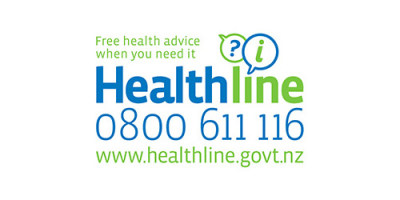RN Simione Tagicakibau shares the story of his two deployments: Samoa, 2019 and Hawkes Bay, 2023
When Simione Tagicakibau returned to his usual work as a mental health nurse in Wahi Oranga at Nelson Hospital from a three-week deployment to Hawkes Bay, he couldn’t remember his HCS login at first. 
“People looked at me and said, ‘are you okay?’ and I said, ‘I am okay, I’m just not all here,’” Simi says with a laugh.
Part of him was still in the North Island (Napier, Gisborne, and Wairoa, to be exact) where he provided psycho-social support to flood and cyclone affected RSE workers.
“I was so tired and exhausted because it was so full on, but I’m glad I was there to give help to people who really needed it. Especially right after the flood when need is really a priority.”
Simi knew to anticipate these feelings of exhaustion and fulfilment from his first deployment with the Pasifika Medical Association (PACMAT). That one was to Samoa in December 2019 during the island’s devastating measles outbreak. There he spent two weeks providing psychosocial support to families grieving their loved ones.
“It was quite devastating to see what was happening on the ground. People were just dying. They had to call people and say ‘come and take your loved ones’ because the mortuary was full, and they needed to accommodate more bodies. Families needed to bury their loved ones on the same day most of the time. There was a lot of death of children because of the low immunisation rate in that group, and they were more vulnerable. Adults too, as measles is airborne and highly contagious."
“It was eye-opening for me, so when this Hawkes Bay one came up, I just put my hand up again because I know how to do this from being in Samoa.”
The call to support emergency efforts came at an inconvenient time, as these calls often do. Simi was in Auckland for face-to-face classes as a part of his Nursing Post Graduate programme.
“I’d only taken two pairs of clothes with me for the classes. After the first day of class, PACMAT called me and said, ‘we’re deploying a team to respond to the flooding and cyclone in Hawkes Bay and we want a Fijian nurse.’ Luckily Kmart was there,” Simi laughs.
For Simi though, inconvenience, discomfort, and the emotional and physical demand is well worth the impact he can have on the Pasifika community in times of emergency and distress. He finds value in helping others, and in gaining experiences in new places and in widening his professional network and meeting new people. He particularly appreciates the immediacy of emergency deployment, of being right there when it matters most.
“Our main focus was to look after the seasonal workers, the RSE workers who are Pasifika,” Simi says.
“There are 9,000 RSE workers in the Hawkes Bay region, and we were helping those people who were affected by the flood and the cyclone. I mean, these were the people we’d see on the TV who were on the roof. Some people we saw were in the water for about ten hours. Just imagine, it’s cold and you don’t know what will happen. They were just waiting for help to arrive.
“Most of the people we saw were still at evacuation centres because most RSE workers live in accommodation provided by the employers, sort of like a dormitory. And they’re away from their families and the place they came from, then this thing happened. I was part of the mental health team for psycho-social support, but it’s more like counselling. We call it ‘talanoa’ - having an informal conversation on healthy coping mechanisms, finding out what is worrying them and what are some strategies they can do to distract.
“For most of them their main worry is money because they are here short term to work and send money home. During the floods they can’t work, so that is a big worry for them.
“In Samoa the family support was there, whereas for the RSE workers in the Hawkes Bay region, some of them had just arrived here and this happened during their first week. Most of them wanted to go back. They’re away from home, in a new country, some of them first time to New Zealand, they’re cold. Just imagine being in the water for ten hours.”
This kind of empathetic imagination serves Simi well in his main role as a community RN with the Nelson Tasman Pasifika Community Trust where part of his work is in vaccine promotion. While educating about the safety of vaccines, he does empathise with the Pasifika community's distrust of vaccines, a holdover of the tragedy that led to the 2019 measles outbreak in Samoa. In July 2018 two twelve-month-old children died after receiving MMR vaccinations due to the vaccine powder being mixed with expired anaesthetic instead of the appropriate diluent. These tragic deaths were picked up by anti-vaccine groups and used to incite fear towards vaccination on social media, causing the government to suspend its measles vaccination programme for ten months. Soon only 31% of infants were vaccinated against measles, mumps, and rubella.
In August 2019 an infected passenger travelled from New Zealand to Upolu, setting off a measles outbreak which would claim 79 lives before the 22nd of December—mostly babies and children: 61 out of the first 70 deaths were aged four and under and all but seven were aged under 15.
A mass vaccination campaign raised the level of vaccination in Samoa from 40% to 95% of the eligible population.
After seeing the devastating effects anti-vaccine rhetoric can have, Simi is committed to using his deployment experience to prevent such tragedies in the future.
“With the COVID-19 vaccine, and with MMR, when I’d see my patients in the community who are Pasifika, I’d share my experience in Samoa and tell them the data – that being anti-vax or having a low rate of immunisation ended up wiping out so many of their people. I share those experiences with them if they’re doubled-minded."
 “New Zealand had a case of measles recently, so during a recent volleyball tournament Pasifika Trust held, that was part of the message to prevent something happening like I saw in Samoa. With that message I was able to reach many people. Majority from the Fijian community because of the language and how I work with that community, so it’s that’s trust we have.”
“New Zealand had a case of measles recently, so during a recent volleyball tournament Pasifika Trust held, that was part of the message to prevent something happening like I saw in Samoa. With that message I was able to reach many people. Majority from the Fijian community because of the language and how I work with that community, so it’s that’s trust we have.”
That trust, cultural understanding, and prior deployment experience will no doubt serve Simi well should another call from PACMAT come to support his community.





